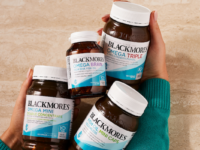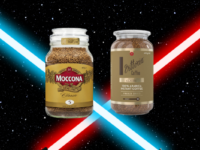
A trademark battle between former Spice Girl Victoria Beckham and a Sydney-based skincare company wrapped up earlier this week with the parties settling out of court.
The dispute began in 2018 when Beckham challenged VB Skinlab, which sells anti-ageing products, after it registered two trade marks. The fashion designer claimed the letters VB could be construed as referring to her fashion and cosmetics products.
The dispute made its way to Federal Circuit Court when Beckham’s team appealed a decision by IP Australia, which found in favour of the Sydney company.
Beckham argued that she has been using her mark in Australia since September 2016, including in an Estee Lauder cosmetics range, and took issue with the use of an image of “a slim brunette with long hair”, similar to her own image, to promote the products.
While Beckham’s challenge was unsuccessful, Brisbane trade mark lawyer Sandy Zhang said this could be down to timing.
“The main lesson here is that Victoria Beckham should have registered her trade mark for VB earlier. She would have been likely to succeed, at least in cosmetics and beauty care services, had she done that at the time she was launching her Estee Lauder cosmetics in 2017,” said Zhang, a senior associate at Eaglegate Lawyers.
“Without that registration, and given her cosmetics range was only promoted for a short time in 2017 in Australia, there simply wasn’t enough evidence to establish any likelihood of consumer confusion, and that was the main reason why she did not succeed in opposing the registration.”
Zhang said most Australians would think of beer, not Victoria Beckham, when the letters VB are mentioned, but said it makes sense that she would challenge the Sydney company as it is common for bigger brands to have an aggressive IP strategy.
“Their policy is to aggressively protect and enforce their IP even where cases are borderline. The idea is to protect the brand from erosion. Victoria Beckham did use her VB mark in relation to cosmetics in Australia, but only for a period in 2017.”
Zhang said the letters VB for a commercial product date back to the 19th Century, with the launch of VB beer in the 1850s.
“It’s notable that the makers of VB, the beer, took no legal action against VB the cosmetics business,” he said.
“For trade marks that are famous, there is a case to oppose registrations of similar trade marks even if they are completely outside of the famous trade mark’s registered goods or services, because consumers might still get confused and wonder if the famous brand expanded into new areas.
“However, in the case of VB (the beer), they probably took no part in this proceeding because they realise that consumers are unlikely to think that VB beer is getting into cosmetics and skincare.”
IP Australia had found despite Beckham’s “significant fame”, she had only acquired “at best a very limited reputation in Australia for cosmetic products” in the 18 months preceding the trademark battle.
Zhang said that big brands need to remain aggressive to protect their marks while also being mindful of PR and practicalities.
“It seems that VB Skinlab is able to continue to operate under its name, although I assume there would be restrictions in the settlement agreement designed to ensure that there can be absolutely no connotation of association with Victoria Beckham,” he said.
Inside FMCG contacted VB Skinlab for comment.
















